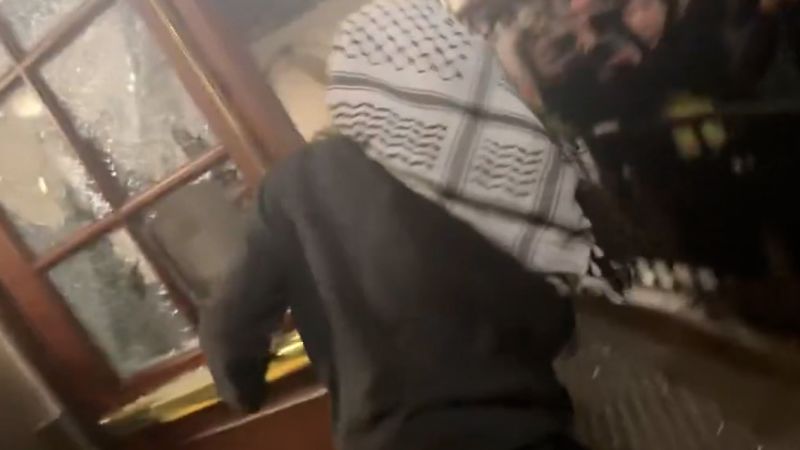The video has sparked controversy and renewed debate around the ongoing Israeli-Palestinian conflict. The protesters at Columbia University have been advocating for the university to divest from companies that support the Israeli occupation of Palestinian territories. The use of force to break into the building has drawn criticism from some who believe that violence is not an effective means of protesting. The incident has also raised concerns about campus safety and the appropriate response to such actions.
In response to the incident, Columbia University released a statement condemning the actions of the protesters and emphasizing the importance of dialogue and peaceful resolution of conflicts. The university also said that it is investigating the incident and will take appropriate action to address the situation. Meanwhile, some students and faculty members have expressed support for the protesters and their demands for divestment, arguing that peaceful methods have not been successful in advocating for change.
The incident at Columbia University reflects the broader tensions and divisions surrounding the Israeli-Palestinian conflict. The conflict, which has been ongoing for decades, has resulted in numerous deaths and human rights abuses on both sides. The issue of divestment from companies that support the Israeli occupation is a contentious one, with some arguing that it is a necessary step to put pressure on Israel to end its occupation, while others believe that divestment is not an effective strategy and could harm the Israeli and Palestinian economies.
The use of force by the protesters at Columbia University has sparked a debate about the limits of activism and the role of violence in achieving social change. While some argue that peaceful protest is the most effective way to advocate for change, others believe that more forceful actions are necessary to draw attention to and address systemic injustices. The incident has also raised questions about the appropriate response from universities and law enforcement to protest actions that cross the line into violence.
As the situation at Columbia University continues to unfold, it is clear that the Israeli-Palestinian conflict remains a deeply divisive and volatile issue. The incident at Hamilton Hall has brought these tensions to the forefront on the campus and has sparked a wider conversation about divestment, activism, and the ethics of protest. It remains to be seen how the university will respond to the incident and what impact it will have on the broader debate around the conflict.
Overall, the incident at Columbia University illustrates the complexities and challenges of addressing the Israeli-Palestinian conflict. While the use of force by the protesters has been controversial, it has also highlighted the urgency and passion with which many individuals advocate for change in the region. The incident has sparked debates about the effectiveness of divestment as a strategy, the boundaries of activism, and the appropriate response to violence in protest actions. As the university and the broader community grapple with these issues, it is clear that the Israeli-Palestinian conflict will continue to be a contentious and divisive issue for years to come.













